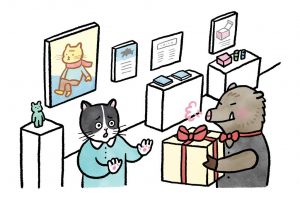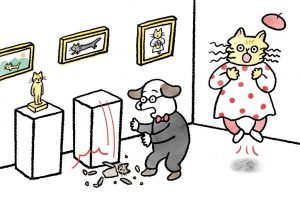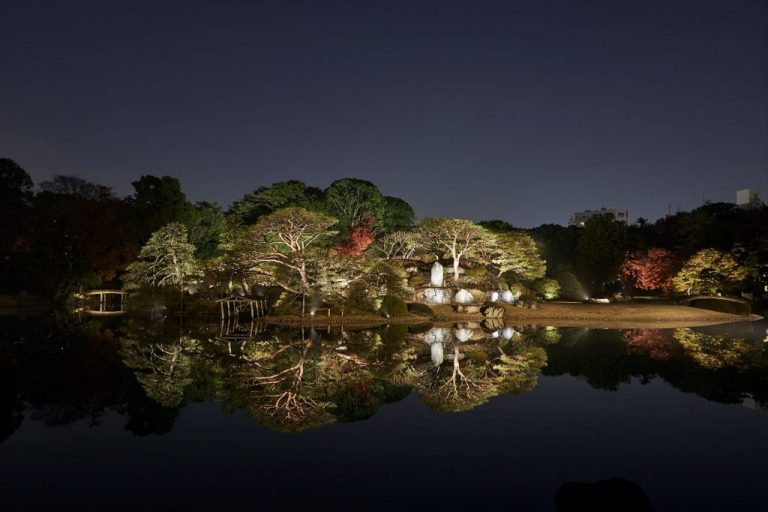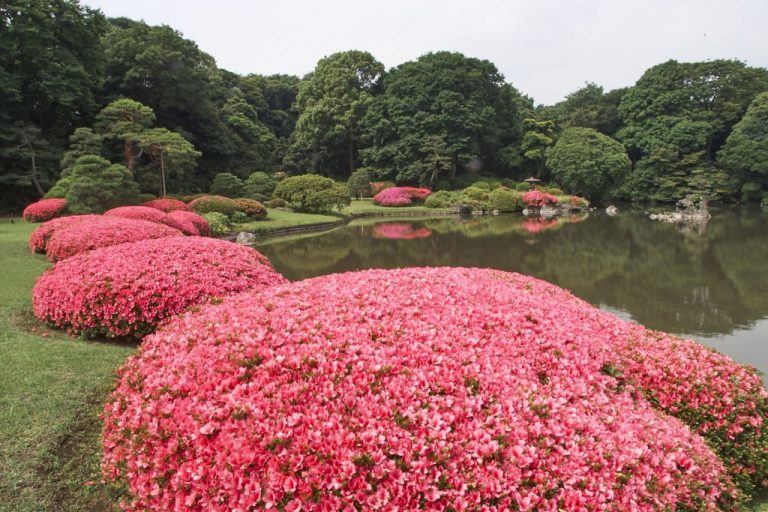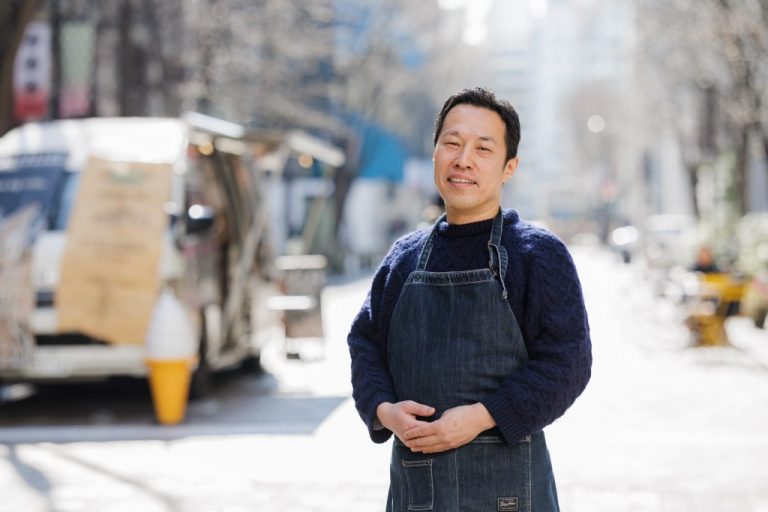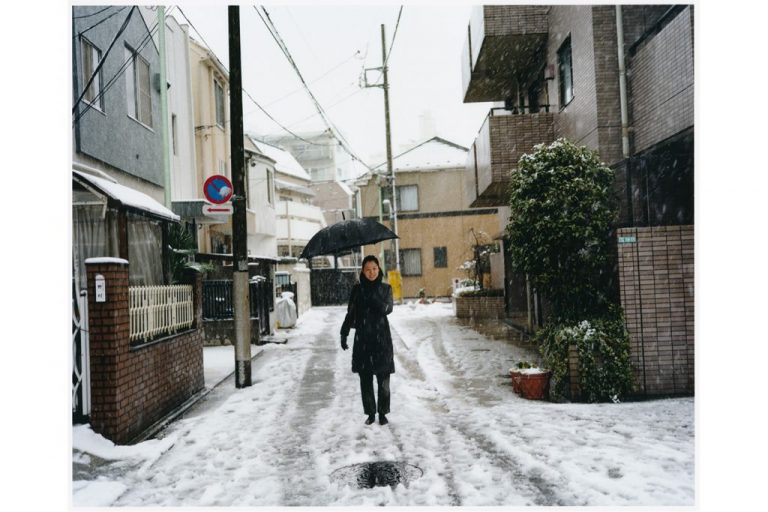Left: Consulter Leo
Center, Right: Responders Igaya, Maruumi
Art Law: Dealing with Difficult Customers (Part 2)
Art Emergency Hotline!
No.005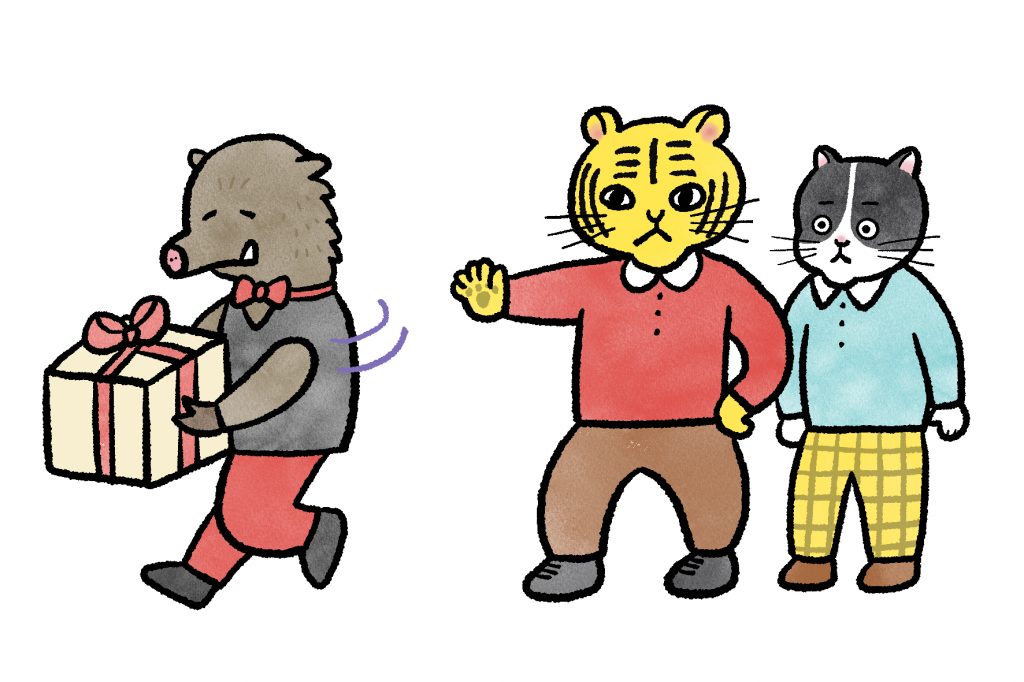
Art Emergency Hotline provides urgent assistance for distressed artists. Each time, several legal professionals respond to a range of inquiries. The law does not restrict your creative activities, and having the right knowledge can provide vital support.
This installment’s topic is “Dealing with Difficult Customers.”
We will be joined by Chika Igaya, a journalist who has written a book on “gallery stalkers” to help address these concerns. In Part 2, we will examine specific cases involving problematic visitors and explore appropriate responses and countermeasures.
Illustration: Kaeko Akaike
Cooperation and supervision: Bengoshi.com
Editor: Yuko Sakamoto
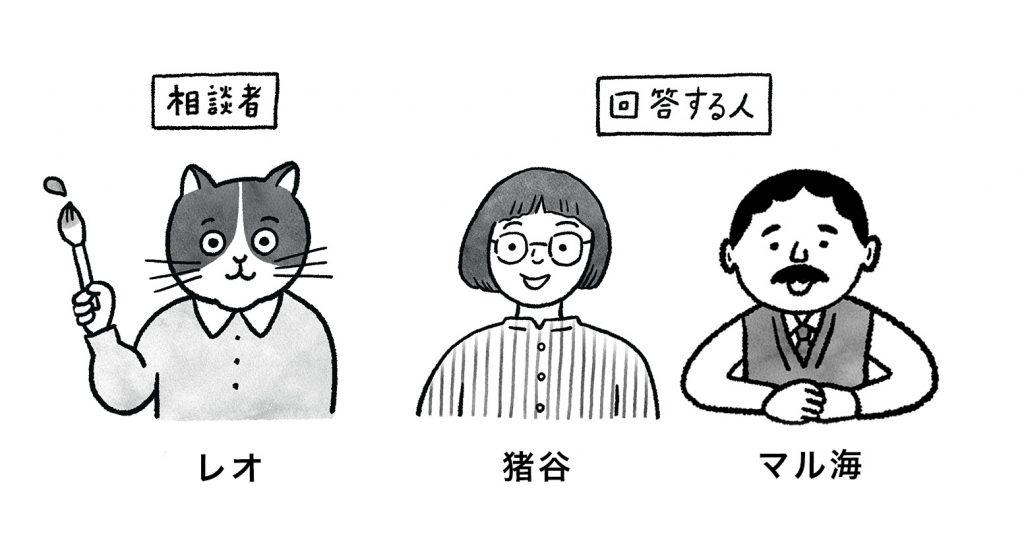
 Leo (Painter)
Leo (Painter)
If someone is deeply moved by my work at a gallery and says, “I would love to visit your studio,” how should I respond?
 Igaya (Journalist)
Igaya (Journalist)
As I mentioned earlier, it’s best to avoid revealing your home or studio location until a solid relationship of trust has been established. Artists are often alone while working, which makes security a concern. Of course, it’s flattering when a curator or gallerist expresses interest, and you may not want to miss an opportunity, but even in such cases, it's wise to hold off until you know the person well.
 Maruumi (Lawyer)
Maruumi (Lawyer)
Instead of answering on the spot, it’s better to say, “I’ll consider it,” and follow up later. This gives you time to research the person, ask others about their reputation, and arrange the visit when multiple people are present. The key is to handle the situation as efficiently and professionally as possible.
 Leo
Leo
What about being taken out to dinner? The gallery owner who lent us this venue mentioned that networking over meals can be beneficial...
 Igaya
Igaya
It can be hard to decline, especially if the person has purchased your work. If you really must go, it’s best to set a clear time limit in advance, such as, “I have plans at 9 p.m., so I can stay until then.” Also, be sure to let someone know you are going out for dinner—this serves as a safeguard in case anything happens. Choose a restaurant where there are plenty of people around.
 Maruumi
Maruumi
You might also consider asking if someone else can join. Their reaction could give you insight into their intentions. If gallery staff are present, you can mention it to them on the spot and observe how the other person responds.
 Leo
Leo
Some people give me gifts—flowers, food, or even cash, saying, “Please use this for your work.” How should I handle each of these situations?

 Igaya
Igaya
Flowers can be displayed at the gallery to brighten up the venue, so that should be fine. However, do not take them home. As for food, it’s best to politely decline or, if you do accept it, not to eat it. Some galleries have policies against passing food to artists because of the risk of contamination. Gifts can also pose unexpected risks—there have been cases where a fan placed a GPS tracker inside a stuffed animal for a Japanese pop idol. Since you never know what could be hidden inside, it’s safest to decline all gifts. If the person is someone you know well or a friend, it may be okay to accept, but selectively receiving gifts could lead to resentment from others who feel it’s unfair. It’s generally safer to refuse all gifts.
 Maruumi
Maruumi
As for money, you should avoid accepting it in most cases. Even lawyers frequently encounter disputes with clients over financial matters, so artists should be aware that taking money carries risks.
That said, some artists may feel compelled to accept financial support to continue their work. If you must accept money, even a small amount, you should draft a contract that clearly states the purpose of the funds. Consulting a lawyer, even after the fact, is advisable. If the amount is large, a contract is absolutely necessary—it should explicitly outline the intended use of the money and state that no further obligations or expectations exist.
If the donor reacts negatively, saying, “I’m doing this out of goodwill,” you can simply say, “It’s my lawyer’s requirement.” In case of future disputes, be prepared to return the money. If the person refuses to take it back, you can use a legal process called “deposit”. This allows you to deposit the funds at a designated office and send the person a notice, which serves as proof that you attempted to return the money. A lawyer can help facilitate this process.
Legal term for this installment
(Official) Deposit
A system in which money, securities, or other assets are submitted to a deposit office—a government agency—for safekeeping. The deposit office ultimately transfers these assets to a designated party in order to fulfill a specific legal purpose.
 Leo
Leo
GPS and foreign objects! That sounds terrifying... Consulting a lawyer also feels daunting, and it seems like it could turn into a big issue... If such a problem arises, is it really necessary to consult a lawyer?
 Igaya
Igaya
I may have frightened you, but unfortunately, it’s not a rare situation. In my own research, most gallery stalkers started off as people who genuinely wanted to support the artists, but many cases later escalated into trouble. While there are male victims of gallery stalking, the overwhelming majority of victims are young women. In some cases, the stalker may even be a woman. Ideally, the responsibility for these risks and responses shouldn’t fall solely on individuals; raising awareness within schools or galleries is needed, but the current situation is not keeping pace. It’s important to consider what you can do yourself.
If a problem arises, the first step is to consult someone close to you—whether it’s a friend, senior, or someone from the gallery—and ask for their help. Don’t try to handle it alone and struggle in silence.
 Maruumi
Maruumi
Lawyers can seem intimidating or expensive, but many offices offer free consultations, and some even work on weekends and holidays. Also, by using the “Houterasu” civil legal assistance program, you can lower the costs of hiring a lawyer. Even if an incident hasn’t happened yet, don’t assume, “This isn’t a legal issue.” If something feels “strange” or “troubling,” it’s always a good idea to consult someone. Some lawyers may give a cold response, but if that happens, consider it just an unfortunate encounter and don’t give up—try another lawyer. It’s crucial to have someone who can mediate and negotiate on your behalf. Also, if you feel uncomfortable about something, make sure to keep a record of it—whether in a diary or on social media—anything that includes the date and time.
 Igaya
Igaya
If you are subjected to clear criminal behavior, do not suffer in silence—contact the police immediately. You are not at fault. Having a third party to support you at this time will surely give you the courage you need.
Tokyo Support Center for the Arts and Culture ARTNOTO
Tokyo Support Center for the Arts and Culture ARTNOTO serves as a platform to support a wide range of artists and cultural practitioners working in Tokyo, helping them to sustain their activities and pursue new endeavors. It provides comprehensive support, mainly online, and across three core functions: a consultation service that responds to problems and concerns, in cooperation with specialists; an information hub, for the delivery of useful information; and our school, which shares essential knowledge and skills with practitioners.
“I want to know about public subsidies and private grants available for arts and cultural activities.”
“I don't fully understand the concept of copyright.”
“I'd like to consult someone about harassment.”
“I need advice on how to keep my organization's activities going”, etc.
Depending on the nature of the inquiry, we may connect you to an appropriate organization or introduce you to external specialists, such as lawyers, if needed.
https://artnoto.jp/eng/
Japan Legal Support Center – Houterasu
A government-established comprehensive information center where you can access legal information and services online 24/7 to help resolve legal issues.
https://www.houterasu.or.jp/site/english/abouthouterasu.html
Arts and Law
Arts and Law (AL) is a non-profit voluntary organization dedicated to planning and implementing support programs for artistic, cultural, and creative endeavors. These programs include a free consultation service, facilitated by qualified professionals such as lawyers, patent attorneys, and accountants.
https://www.arts-law.org (in Japanese)
Bengo4.com (Bengoshi.com)
“Bengoshi.com” offers a variety of services to assist in resolving legal troubles, including “Legal Consultation for Everyone,” a free legal consultation service, and “Lawyer search,” which allows you to find lawyers and law firms by region and specialty.
https://www.bengo4.com/corporate/en/service/bengo4/


